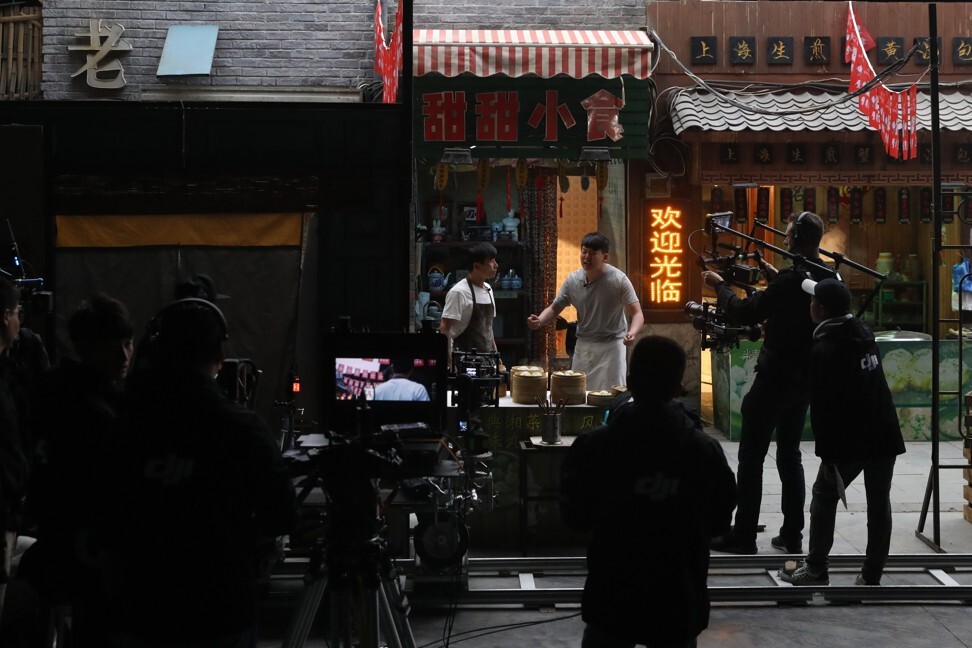
Film producers hang on as China’s economy creaks back into life, putting industry in shape to resume break-neck growth pace
- Beijing Enlight Media, Wanda Film and Alibaba Pictures are the three most valuable film producers in China by market capitalisation, according to the Hurun Report
- Ticket sales plunged 88 per cent in the first quarter, with an estimated 30 billion yuan of lost revenue at the box office, due to the coronavirus lockdown
Beijing Enlight Media, Wanda Film and Alibaba Pictures are the three most valuable private film companies in China, leading the world’s most populous nation in its growth into the largest global film market, according to Hurun Report.
“China has grown into the second-largest film market in the world only after North America, and it’s likely to become the largest market, especially this year when China’s control of the coronavirus pandemic is more effective than the US,” said Hurun Report’s chairman and chief researcher Rupert Hoogewerf, adding that the first ranking of its kind in China is based on market valuation and funds raised by non-listed producers.
The global coronavirus pandemic, which closed thousands of cinemas, restaurants and public amenities, and kept tens of millions of Chinese homebound, has decimated China’s film industry, causing first-quarter ticket sales to plunge 88 per cent to 2.238 billion yuan, according to the China Film Association. One in five cinemas surveyed by the association laid off staff at the end of March during the worst of the country’s Covid-19 outbreak, and the entire industry lost an estimated 30 billion yuan in ticket sales as of the second half of May, according to Alibaba Pictures’ data.

Now, as the first major global economy to emerge out of the coronavirus lockdown, China is slowly getting factories, restaurants, offices, shopping centres and cinemas back online.
Work returned to 71 per cent of cinemas in China as of August 12, albeit with social distancing in place and drastically reduced capacity, according to Maoyan Entertainment. That still puts the industry in better shape than other markets to regain its growth, which recorded up to 23 per cent in compound annual growth rate over the past decade, Hoogewerf said.

In second place of the value ranking is Wanda Film, a unit of tycoon Wang Jianlin’s Dalian Wanda Group, with 36 billion yuan in capitalisation. The Shenzhen-listed owner of the American cinema chain AMC Entertainment was the producer and distributor of the 2015 reality comedy Running Man, which grossed 434 million yuan. Wanda paid US$2.6 billion in 2012 for AMC.
Alibaba Pictures, a unit of this newspaper’s owner Alibaba Group Holding, is in third place with 26 billion yuan in value. Alibaba Pictures jointly produced Green Book in 2018, which took home three Academy Awards the following year.
The rest of the Hurun China Most Valuable Film Companies 2020 list comprises Dadi Cinema Line, Tencent and Alibaba invested Bona Film. Huayi Brothers Media, which produced the 2004 movie starring Hong Kong’s Andy Lau in A World Without Thieves, also made the list.
Maoyan Entertainment, which owns the largest online movie ticket sales platform in China, as well as Huace Film and TV and Hengdian Entertainment were also in the list. In 10th place is Beijing Culture, producer of the 2019 science fiction movie The Wandering Earth, which grossed US$700 million worldwide and was the third-biggest movie in China’s film history.
Beijing remains China’s movie hub, where eight of the 10 most valuable film companies have based their headquarters, while Huace Film and TV and Hengdian Entertainment are based in Zhejiang province.

